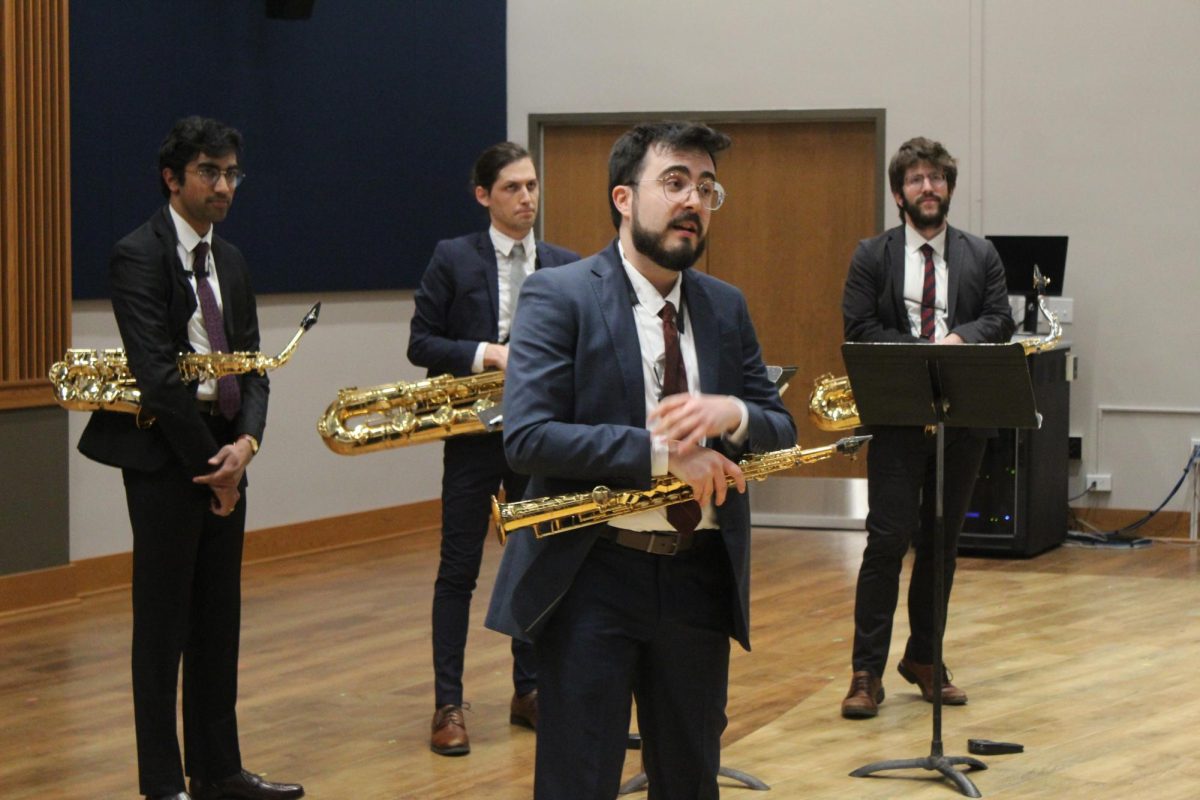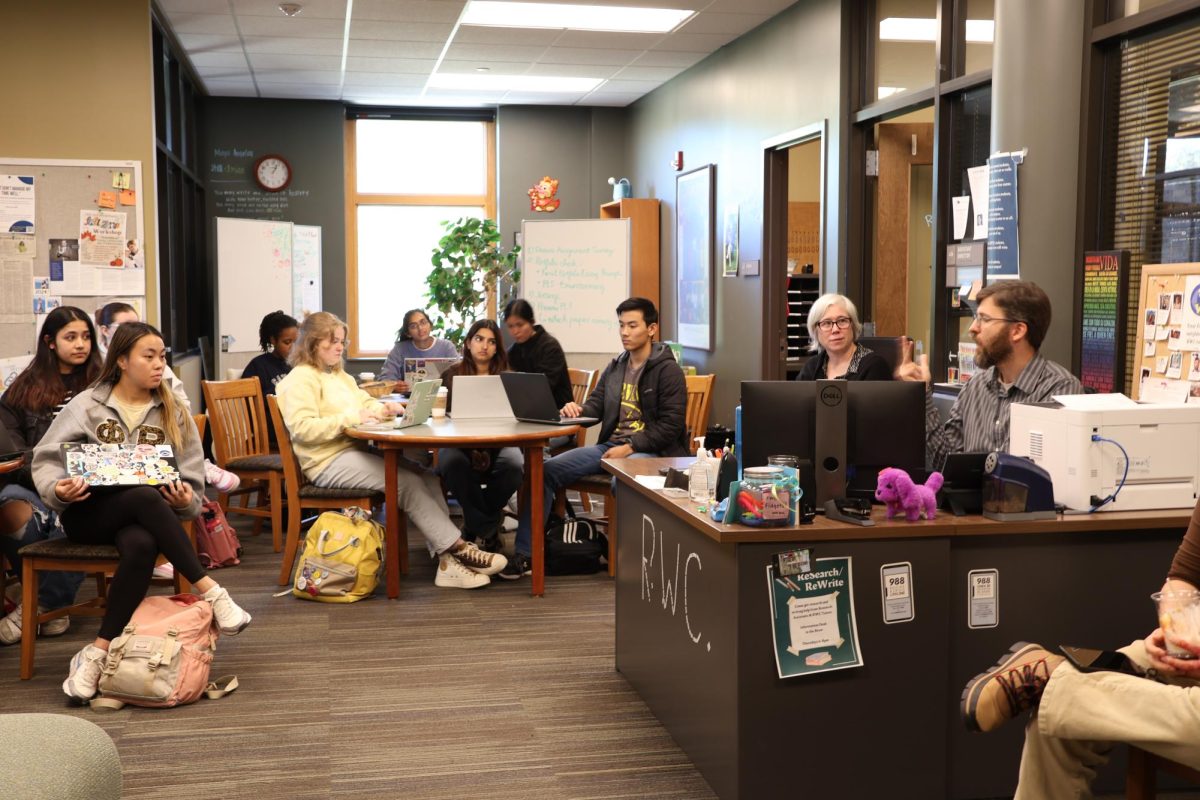In the age of rapidly advancing technology, artificial intelligence (AI) has permeated various aspects of our lives, including education.
At Augustana College, the Reading and Writing Center (RWC) offers students support to improve their academic skills.
However, the recent discussion about integrating AI tools into the RWC raises critical questions about the implications of such a move.
In theory, the tool is an efficient means of recognizing student errors or quickly summarizing information.
However, its use in improving student writing and reading comprehension skills could develop into a dependency instead of assistance. Using AI to “help” student learning, in this context, prevents it.
The RWC provides a space for personalized, one-on-one instruction, allowing students to engage with and improve their writing and reading skills while working in a collaborative environment to explore their ideas, receive constructive feedback and develop their abilities over time.
Interactive learning processes similar to what is provided in this space are integral to academic growth, and introducing AI into this equation risks transforming this into a one-sided exchange prioritizing speed and shortcuts over substance.
One of the primary concerns about using AI in the RWC is the potential for students to become overly dependent on technology.
It’s essential to consider whether students will learn anything meaningful or simply rely on AI-generated suggestions and edits.
As students increasingly turn to AI for writing assistance, they may forfeit the opportunity to develop critical thinking and analytical skills essential in the academic world and beyond.
Using AI in the RWC could make it like a calculator; it’s hard for us to imagine a world with just a pen and paper for complex math problems or even without the means of just checking the work we have done.
Using AI as a way of going beyond a simple spell or grammar check and instead as a way of quickly transforming the words we have written into something else entirely is not fostering an environment of learning but a dependent relationship that would forever transform the way students at Augustana craft anything involving writing.
Writing is not just about getting the words down; it’s a process of crafting thoughts, articulating arguments and expressing our individuality.
Relying on AI tools might produce a polished product, but it strips away the labor and thoughtfulness that contribute to true learning – removing any sense of “us” in the paper we submit.
Another major issue in implementing this change is the inconsistency in AI policies across different classes.
Not all professors endorse the use of AI, and others only allow it in very specific circumstances.
If AI were used in the RWC, it would blatantly conflict with the policies outlined in many of the faculty’s syllabi, or it would have to be used in a very particular way to not conflict with others.
This means that the tool students would be learning to rely on would not be universally applicable, and a dependence on a tool they are unable to use may result in poor academics, honor code violations and other ramifications.
Additionally, there is a growing concern about the quality of AI-generated content. While AI tools can mimic human writing, they lack the nuance and contextual understanding a trained tutor can provide.
The feedback that students receive from AI may be generic and not address the specific challenges or questions that they face in their work, in contrast to the help human tutors at the RWC are able to provide students.
This means that the work submitted may not even be good enough to receive above a passing grade.
AI might seem like a convenient tool to enhance productivity, but instead of fostering independence and critical thinking skills, AI reliance may lead to dependency and a decline in educational quality as we embrace the allure of artificial shortcuts.









































































































